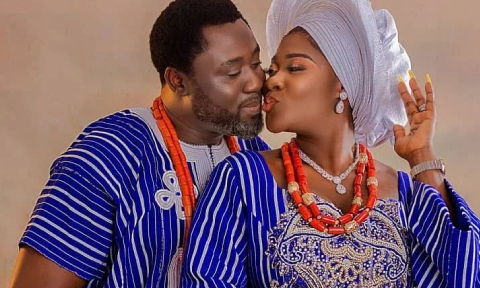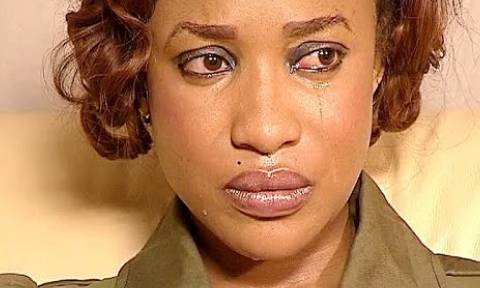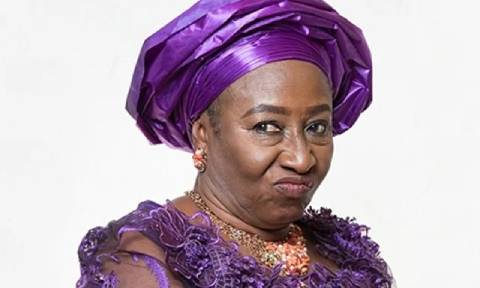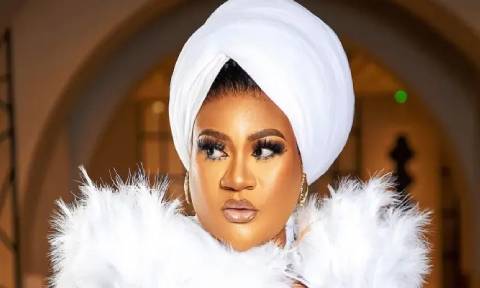
Mosurat Omidina otherwise known as Omoladun Kenkelewu could be regarded as the first Yoruba female comedian. She recently spoke to GBENGA OLUMIDE on the gains and losses of her unique role in the Nigerian film industry. Excerpts:
Everybody knows you as Omoladun Kenkelewu. How did you acquire that appelation?
Omoladun was given to me by my boss, Okanlawon, but the Kenkelewu part joined it when I acted in Oko Yoyo, a film produced by Wemimo.
When exactly did you start acting?
I started in 1981, but I got serious with it in 1982, when I joined the group led by Okanlawon.
What were you doing before then?
I was selling amala. I can call it something in the family because both my mum and elder sister sell amala. So, I was selling amala before I became an actress. In fact, I want to open a bukateria where I would be selling amala.
Which film brought you to the limelight?
Though I was fairly popular when we did Iya Okanlawon, a TV drama, it was Oko Yoyo, a Wemimo film, that really shot me to the limelight.
What challenges did you face then as a young actress?
There were several challenges. My first marriage suffered immensely because of my chosen career. You know, my first husband was not an entertainer; therefore, he didn’t see it as a funny thing when we would be going together, and people would be shouting my stage name. Being a private man, he didn’t like it at all, and this led to other problems.
Was it because of that experience that you left your first husband for Baba Suwe?
I didn’t leave my first husband. Despite all the problems, I stayed back. But he died along the line, and it was quite a long time afterwards that I met Baba Suwe. And I had some misgivings, you know, as he was married. I didn’t want people to accuse me of causing the destablisation in a fellow actor’s home, but destiny cannot be changed, and I thank God for everything.
Both you and Baba Suwe are assumed to be possessed of caustic lips . How do you manage to get on at home?
When we are at home, I have to be humble before my husband. It is written in the two holy books, that wives should be humble before their husbands, and I try to do this. So, we relate very well at home.
But when you crack jokes, don’t some of the languages you hear in films creep in?
Not at all. Babatunde is different from Baba Suwe. He is Babatunde at home; it’s only on screen that he is Baba Suwe, and Babatunde is not somebody I can just talk to anyhow.
What would you call your strong point in this business?
If I have to list those qualities, I will offend a lot of my colleagues. This is because some habits that they indulge in, I abhor. Many among us can’t endure; many can’t withstand hard times, be it in matrimony or the profession. These are what I do. In fact, they have given me a name. They called me Mugun Baba Suwe (Baba Suwe’s dunce).
How many films have you produced?
Four, namely Obakan, Olaoore, K’okunrin To Atorin and the yet-to-be-released A Ti Koo (It is written).
How many films have you participated in?
Ah! I can’t count it. They are too many.
Some actresses accuse producers of sex-for-screen demands. Have you ever experienced such a thing?
Never! Nobody has ever done that to me. I believe all this has to do with the way you comport yourself. I have never experienced harassment of any sort before. Granted, when I became popular, men made advances, but it has never reached that level, and can never get there.
How would you describe Baba Suwe?
He is a very caring husband, very supportive. Whenever I want to take any step, he is always there to support me. And if I seem to lag behind in any area, he is always ready to lift me up. He is a good man. There is no marriage that is a bed of roses, but in all, Baba Suwe is good enough.



















